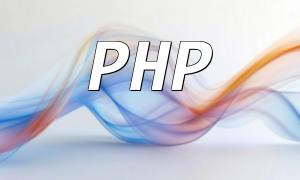In PHP, when the parser encounters an unqualified identifier (such as a class or function name), it defaults to parsing it as the current namespace. Therefore, to access PHP's predefined classes, you must reference them by their fully qualified name using the \
Included files will default to the global namespace. Therefore, to reference a class from an included file, you must add the \ prefix to the class name.
# test1.php
<?php
class myclass {
function hello() {
echo "Hello World";
}
}
?>
When this file is included in another PHP script, the class must be referenced with the \ prefix.
# test2.php
<?php
include 'test1.php';
class testclass extends \myclass {
function hello() {
echo "Hello PHP";
}
}
$obj1 = new \myclass();
$obj1->hello();
$obj2 = new testclass();
$obj2->hello();
?>
When running the above code, you will see the following output:
Hello World Hello PHP
Through the above examples, you can clearly understand how to access global classes in PHP and how to reference them across different namespaces.









